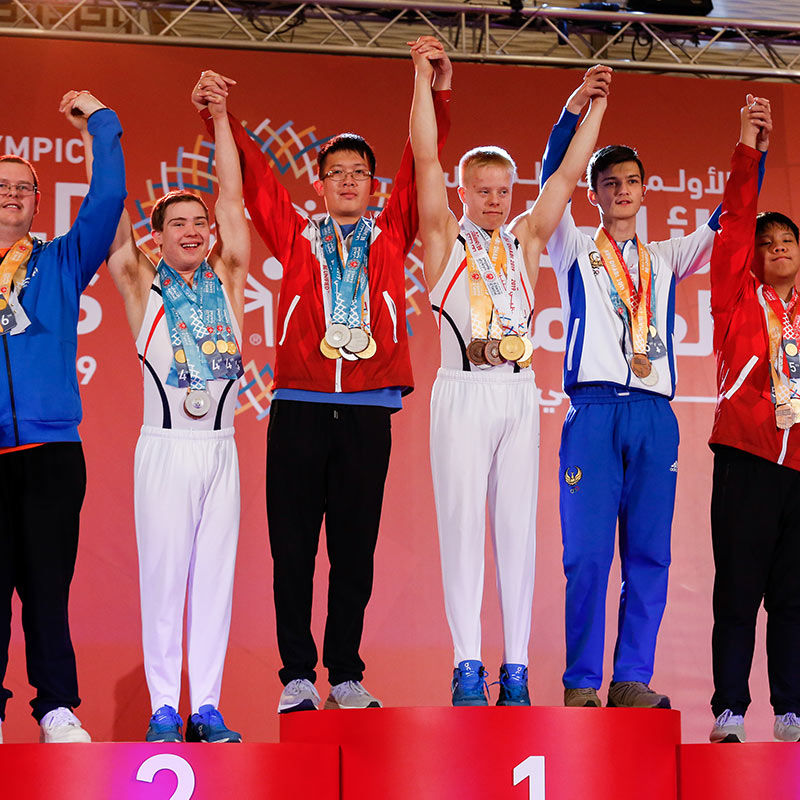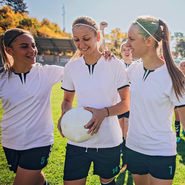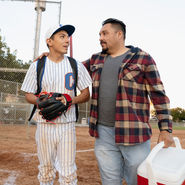Relationships between players and coaches are special. You might recall Red Auerbach and Bill Russell. Then consider Phil Jackson and Michael Jordan. Greg Popovich and Tim Duncan. And John Wooden and Bill Walton. They are forever linked together in history, and they represent some of the strongest bonds in sports history. The same goes for the players and coaches who participate in the Special Olympics. Although they may never appear on national television hoisting a championship trophy, their bonds will be just as tight.
The mission is clear: to provide a year-round sports and training competition for children and adults with intellectual and developmental disabilities. The program allows for physical fitness, promotes courage and embraces joy and the building of a family atmosphere within a community. “The relationships between the players and the coaches are amazing,” said Lisa McNelly, the community relations coordinator for the Scioto County Developmental Disabilities in southern Ohio. “Everyone involved really becomes like one big family.”
Special Olympics is as strong today as it was when the organization was founded in 1968. It strives to create a better world by promoting and encouraging acceptance for all people, especially those who are challenged with a disability.
In the Special Olympics, integrity and relationships come together in unity. They coexist and become identical. “I’ve seen our older athletes take the younger ones under their wings and teach them,” McNelly said. “And we have multiple teams who come together for one reason, and that is to play sports.”
It’s more than competing. They play to enjoy athletics as much as anyone else does, and it provides them with a sense of pride and self-worth. “It’s about participation and being able to show others that they can do this, too. They are athletes. They are Olympians, and it’s important that they be seen and treated as athletes because they are.”
A few weeks ago, my wife and I volunteered at the Night to Shine in Huntington, W.V. This event is sponsored by the Tim Tebow Foundation, and hundreds like it take place on the same night all over the country. Hundreds of participants are treated to their own special night with a magical prom. For a few short hours, volunteers pamper them and help them get dressed up in formal wear to walk down the red carpet on their way to enjoy an evening of dining and dancing. The looks of joy on the faces of these men and women are an absolute delight and make the time spent by volunteers so worthwhile.
Special Olympics also makes those with disabilities feel special and provides an opportunity for them to enjoy the thrill of competition and build strong relationships at the same time. The power of sports allows the discovery of new abilities, skills, strength and success. Athletes learn quickly about the joys of a rivalry and establish the confidence needed to meet life’s challenges on the field of competition.
Special Olympics inspires people with disabilities in their communities and cracks open a world of human potential. “I see how they grow and how their world improves when they play competitive sports,” McNelly added. “A confidence emerges, and they are empowered.”
According to statistics, there are about 200 million people with developmental and intellectual disabilities in the world. The Special Olympics has the unique opportunity and desire to reach these people and their families through training and athletic competition. Just like you and me, they want to play and compete and win, as McNelly said.
“They set goals and meet them most of the time,” she added. “The ones I am involved with love sports and the friends they make.” Those who work with Special Olympics demonstrate integrity while building relationships with the athletes who play with heart.
“Do nothing from rivalry or conceit, but in humility count other more significant than yourselves. Let each of you look not only to his own interests, but also to the interests of others” (Philippians 2: 3-4).













